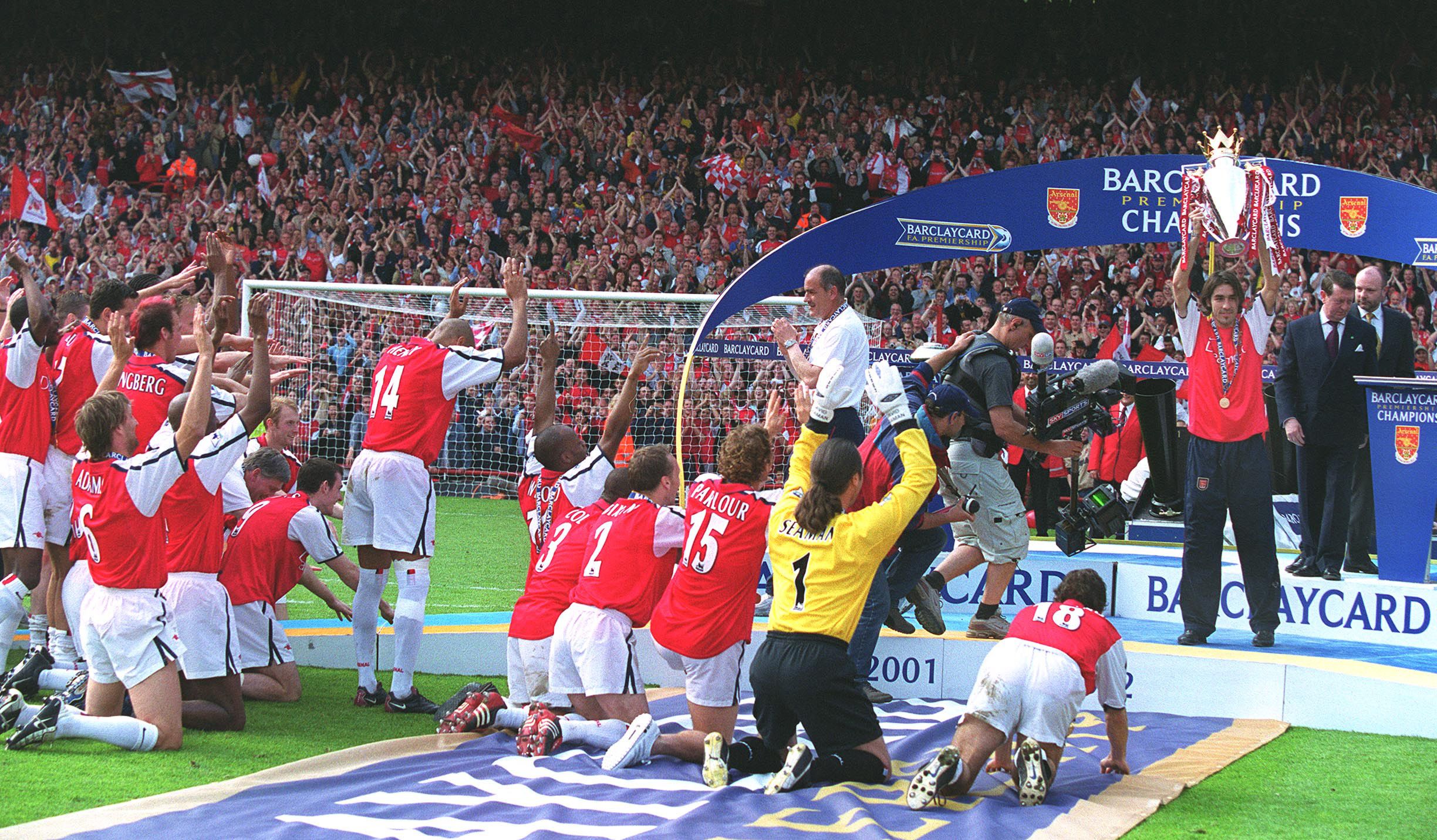Tales from the Invincibles
Robert pires
WE CATCH UP WITH THE MEMBERS OF THE 2003/04 INVINCIBLE TITLE-WINNING SQUAD, TO ASK THEM ABOUT THEIR MEMORIES AND HIGHLIGHTS OF A CAMPAIGN LIKE NO OTHER.
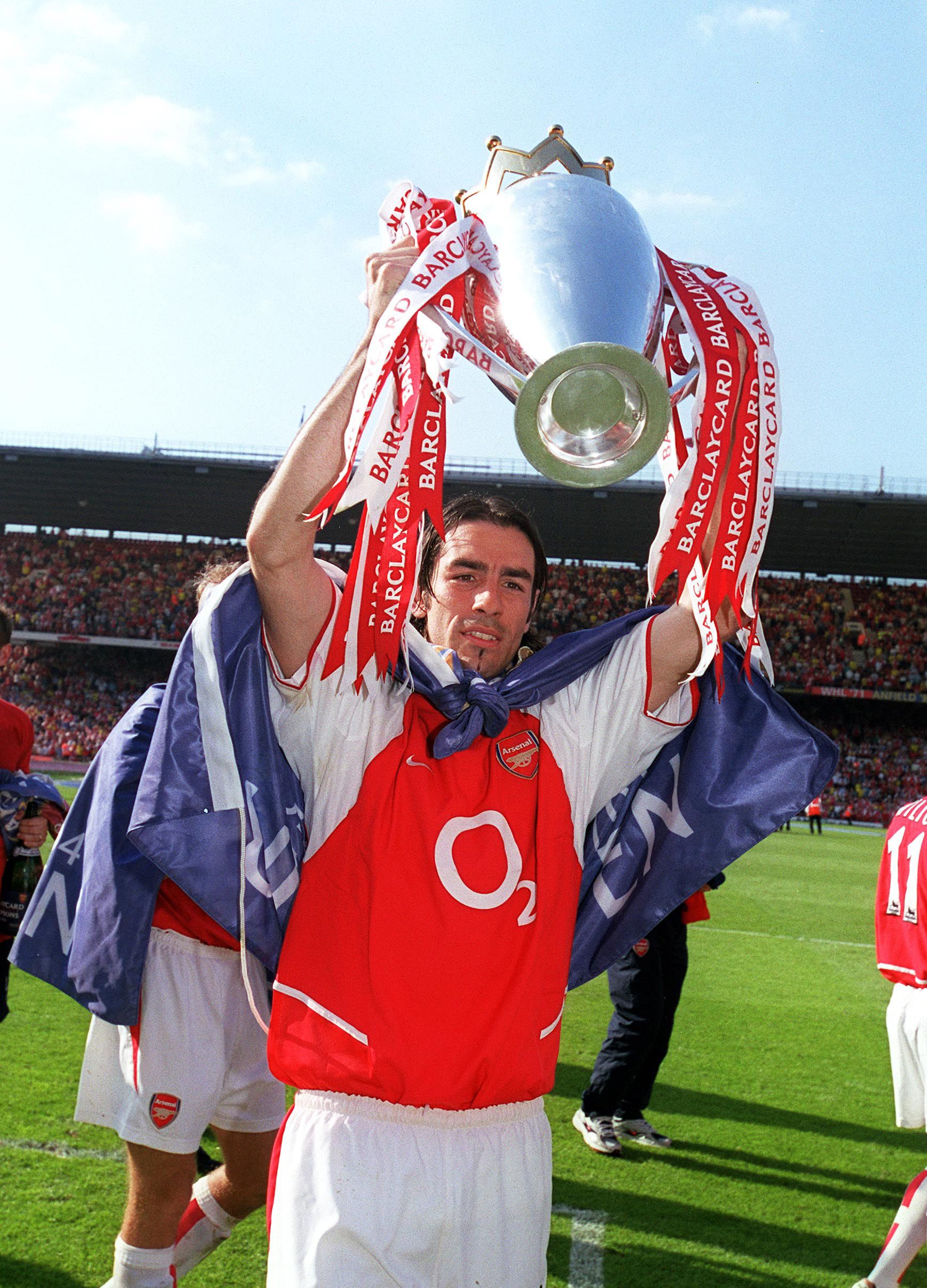
Robert Pires enjoyed his best-ever goalscoring season during the Invincibles campaign, scoring 19 in all competitions – 14 in the league. But his contribution was about so much more than goals. A chief source of creation and inspiration within the team, Pires was a joy to watch throughout the season, being named in the PFA Premier League Team of the Season for the third year running.
This was his fourth season at the club, having joined in 2000 from Marseille, and he would play two more seasons, before leaving for Villarreal aged 32, just before we moved to Emirates Stadium in the summer of 2006. He played 284 times across his six years with us, scoring 84 goals, putting him equal 25th in our all-time scoring charts. He also won the Premier League title in 2002, being named Football Writers’ Player of the Season that year, despite missing the last two months of the season with an ACL injury.
He won two FA Cups as well, scoring the only goal in the 2003 final against Southampton. A World Cup, double Confederations Cup and European Championship winner with France, he played 79 times for his country, and called time on his playing career after a brief spell in Indian football in 2016.
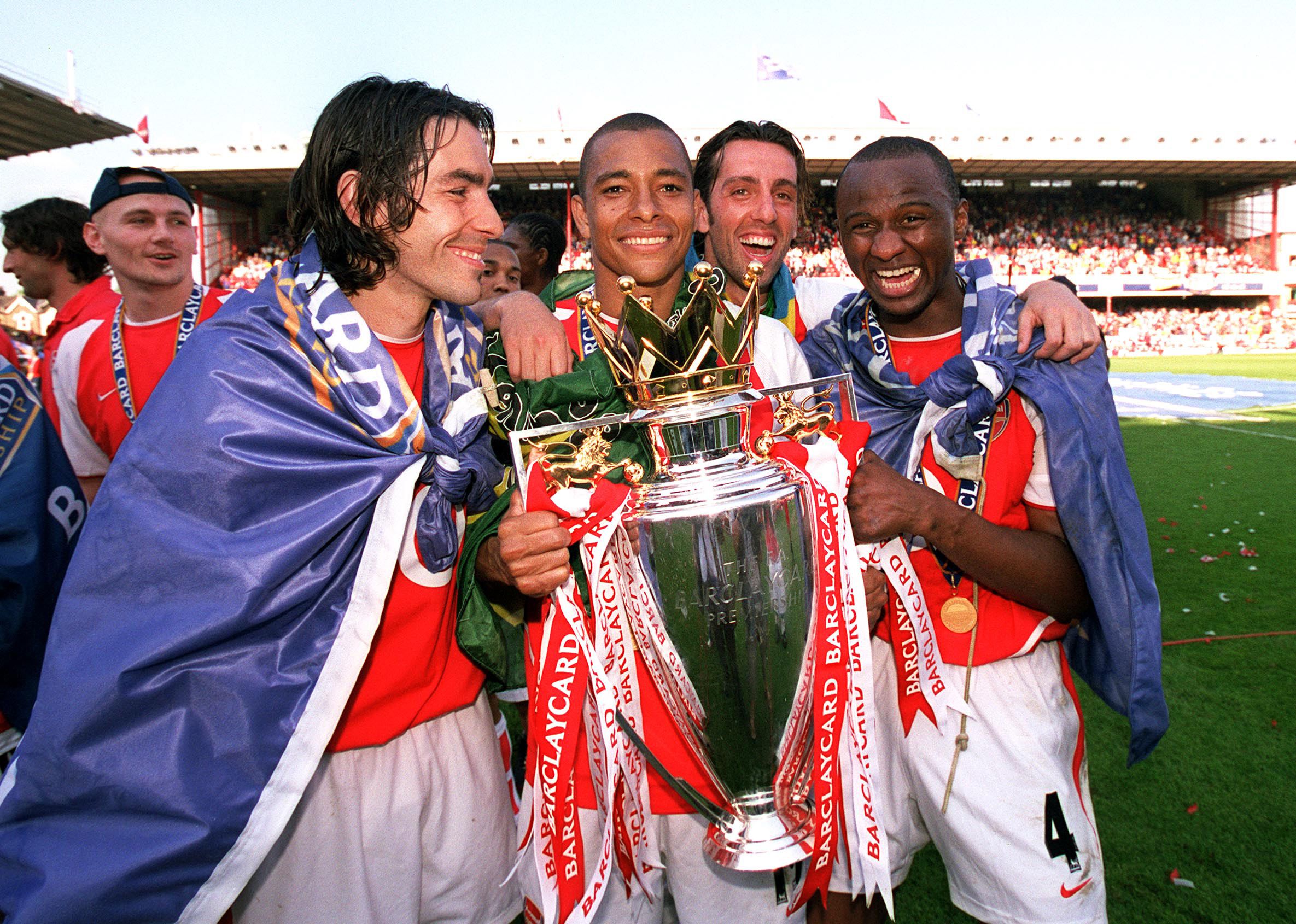
Robert, you had ended the 2002/03 season with a hat-trick in the final league game, then the FA Cup final winner against Southampton, then won the Confederations Cup with France in the summer. You must have been flying going into the new season?
Haha yes, I felt good! I don’t know why but sometimes you have moments like that, you find yourself in good shape. You are playing good football, you have great players around you who are playing the same style as you. So for me, it was easy to play good football at that moment. It was just about your confidence, and for me that was a great time.
It was still less than two years after your ACL injury, did you feel completely free of that by then, psychologically and physically?
Yes in my mind I was very good. I had learnt a lot about my knee injury, and my feeling was very good. I would talk with Arsène every morning in training and we knew I was in a good moment on the field. I had found good stability on and off the pitch at that time. But believe me, that time I was out injured felt very long!
If you can imagine being seven months out of the team, it was a good test of the mentality. Not so much of the football, because that is in my blood, in my legs, so I found that easier. But mentally it was difficult as I was out for so long.
I worked very hard every day while I was injured and I hit my target of coming back to the team six or seven months after surgery.

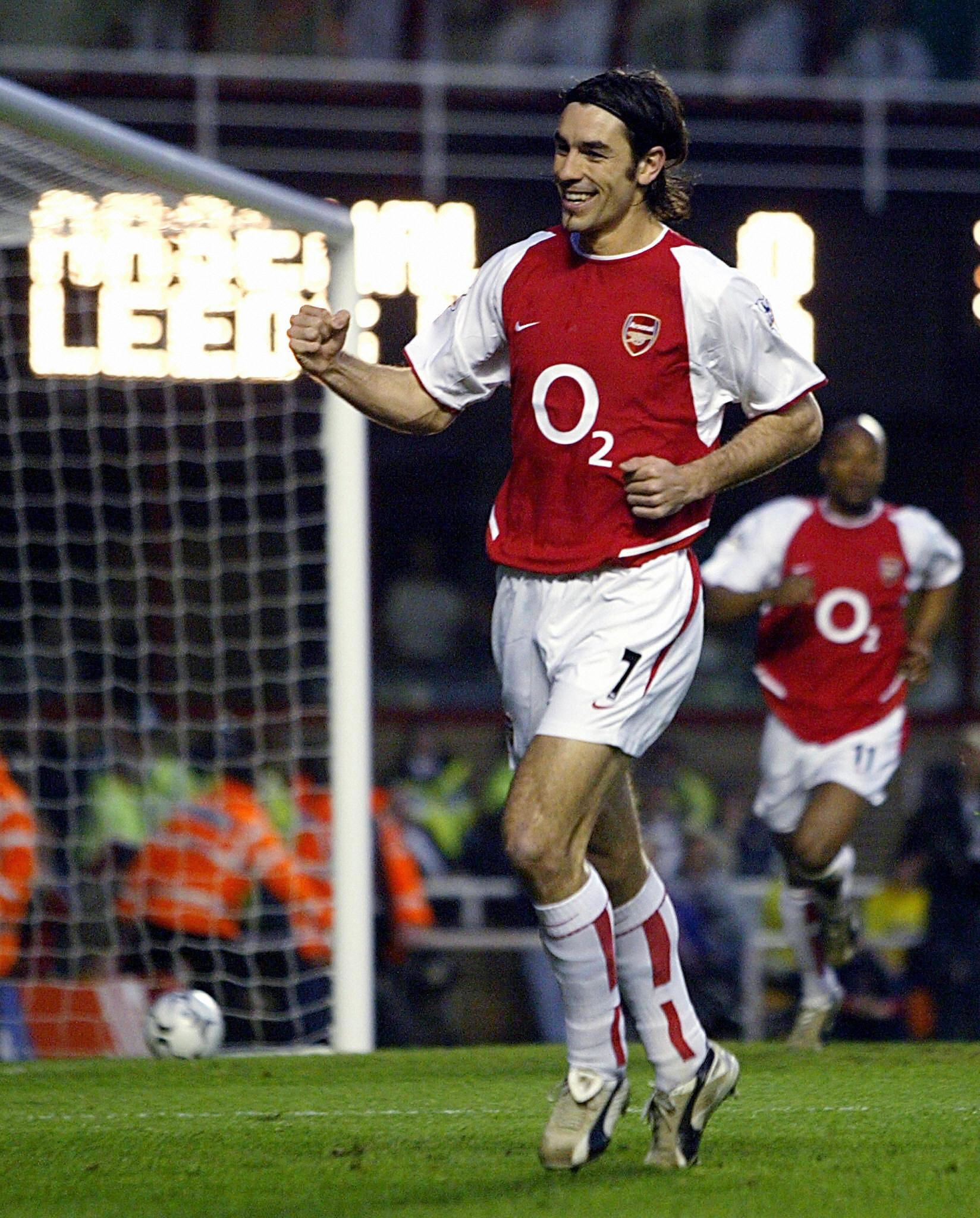
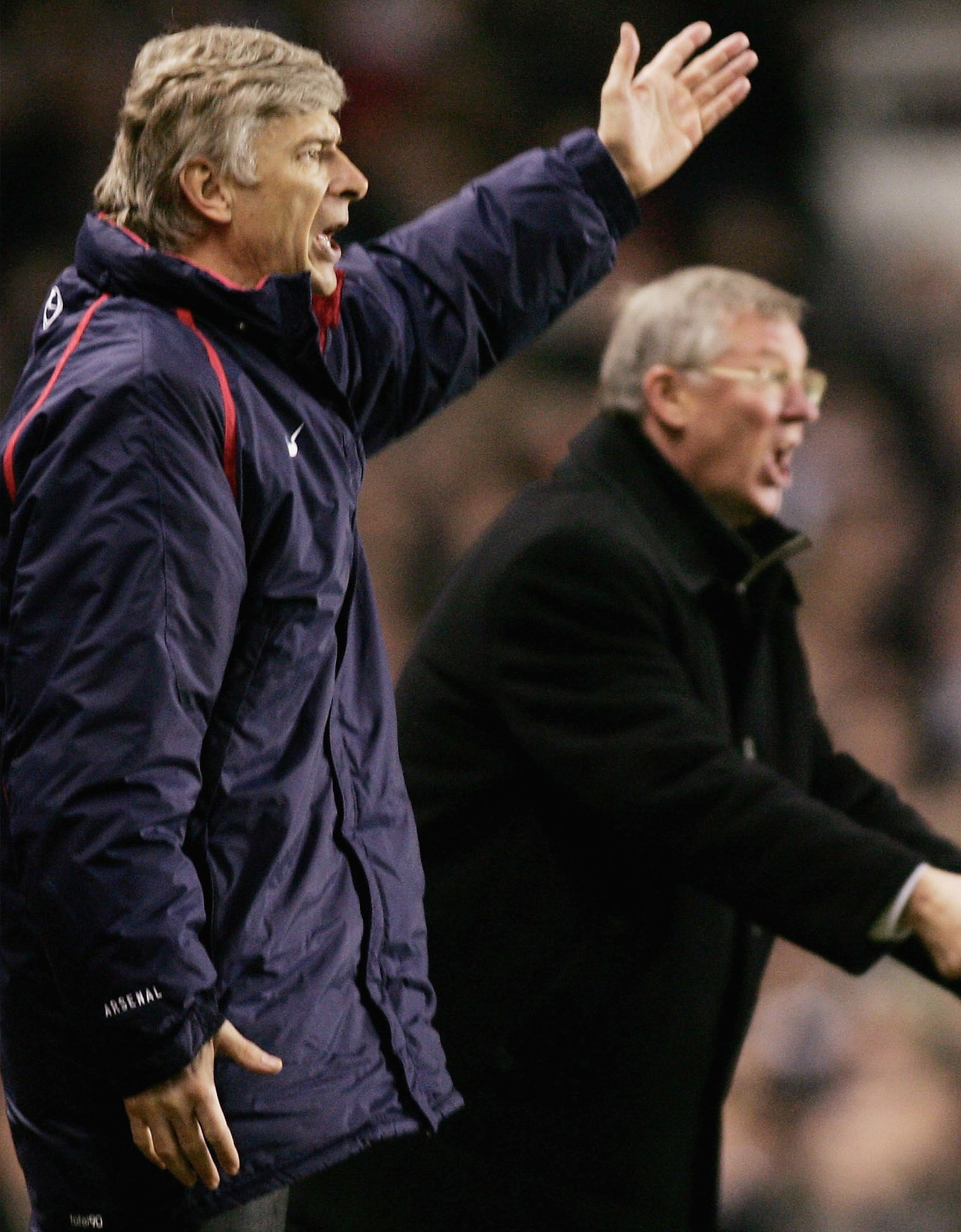
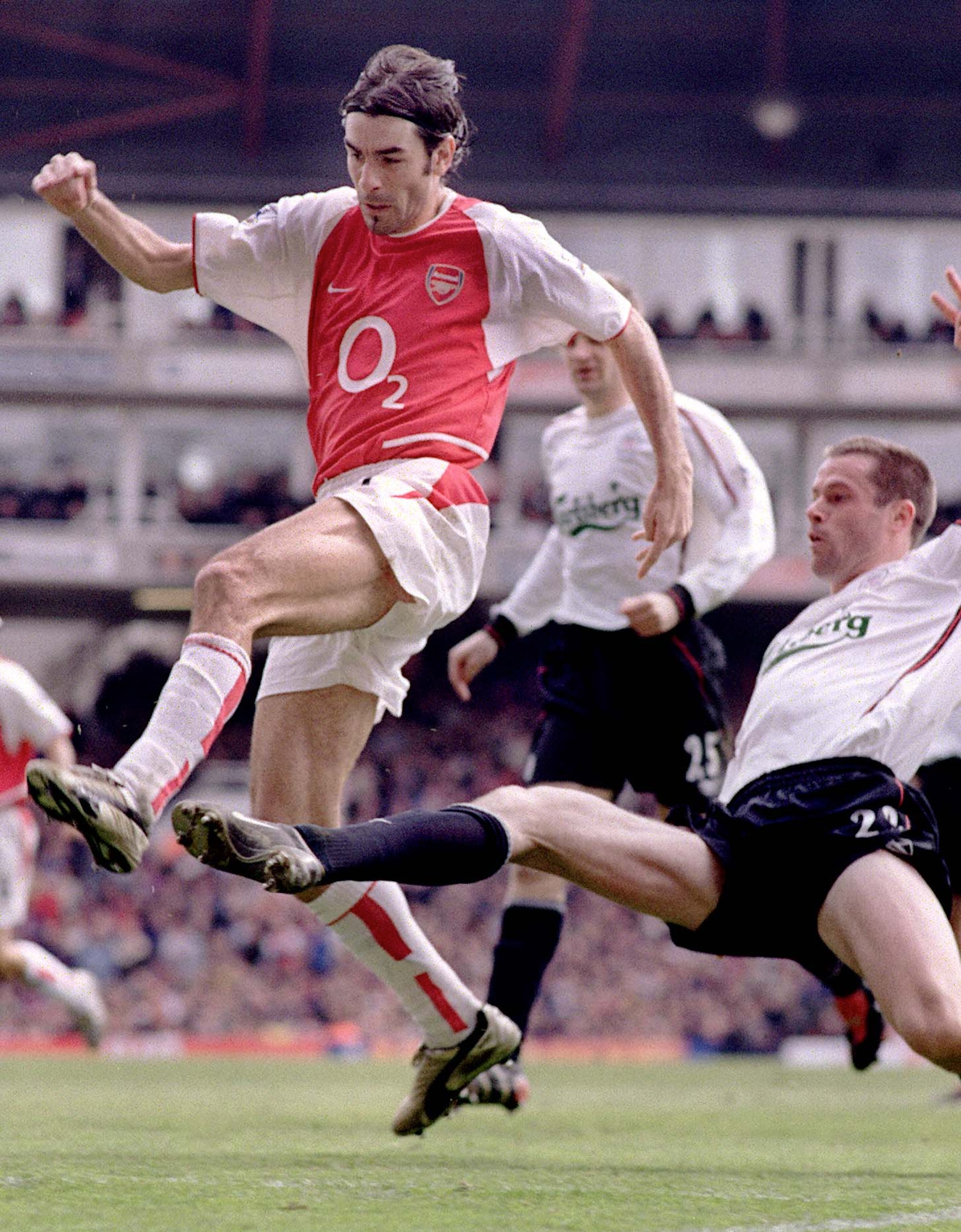
Early in the season we travelled to Old Trafford, one of only two games that season you didn’t feature in. How disappointed were you to watch it from the bench?
I was, everyone wants to play that game, but the manager spoke to me, told me it was better if I started on the bench and I said “OK, no problem, I understand.” Because I played for the team, not for myself.
I was never selfish like that so I always respected the manager’s decision and trusted his reasons. I was ready for whenever he needed me. It was interesting watching it from the bench! Everybody knows the rivalry between the teams, between Alex Ferguson and Arsène Wenger, and especially between the players on the field.
That day was very electric. When Ruud van Nistelrooy missed the penalty everybody was very happy – especially Martin Keown! He looked ready to kill, you can see it in the pictures. You always need players like Martin, like Tony Adams, like Lee Dixon. Arsène knew this and built a very good side.
You did play at Anfield a few weeks later though, creating the first goal and scoring the winner. Was that one of your best for Arsenal?
I don’t know, I liked my goal away to Aston Villa, but this one as well yes, because it won the game, and I remember at the time my private life was very difficult too. That’s why I was so emotional when I scored the goal, and you see it in the celebration. It was important to win there, at Anfield, but also for myself because at that time it was
a bad moment in my life away from football, so I needed that goal.
"I was very happy to score some goals too, but when I talk about Arsenal, I always talk about the team."
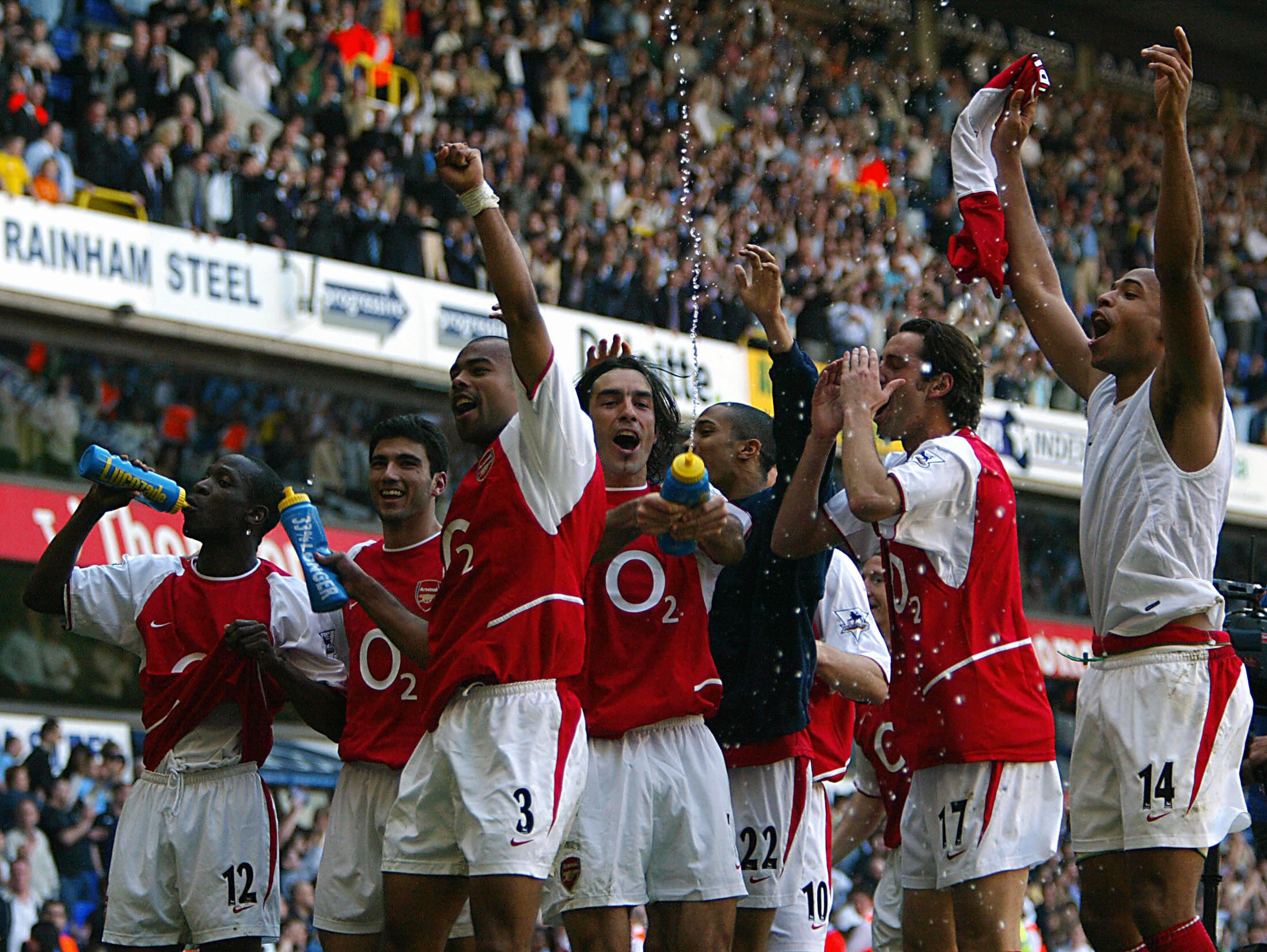
Edu provided the assist for your goal that day, did you think he would go on to hold such an important role at the club when you knew him as a player?
To be honest, no, because when you play together, you don’t think too much about the future. You live so much in the present, or the close future, you just think about the next game. So we didn’t talk about Thierry or Patrick going into management either. But I’m very happy for Edu and happy for the club because they have found a good stability and now Arsenal are one of the best teams in Europe and at the top of the Premier League.
You scored seven goals in 14 appearances during the winter, did you feel like you were playing the best football of your career at that point?
It’s very difficult to compare seasons or teams, but for me I just think I reached my best football while I was at Arsenal. I had very good players around me, and I found it interesting to play with Dennis, with Kanu, with Freddie. I don’t mention the French players, because I played with them all the time with the national team as well – so that was natural.
Sometimes when you play with foreign players, it’s not as easy, because you have not been brought up with the same style of football. But at Arsenal, I found a very good connection with all those players, and with Ashley Cole as well behind me.
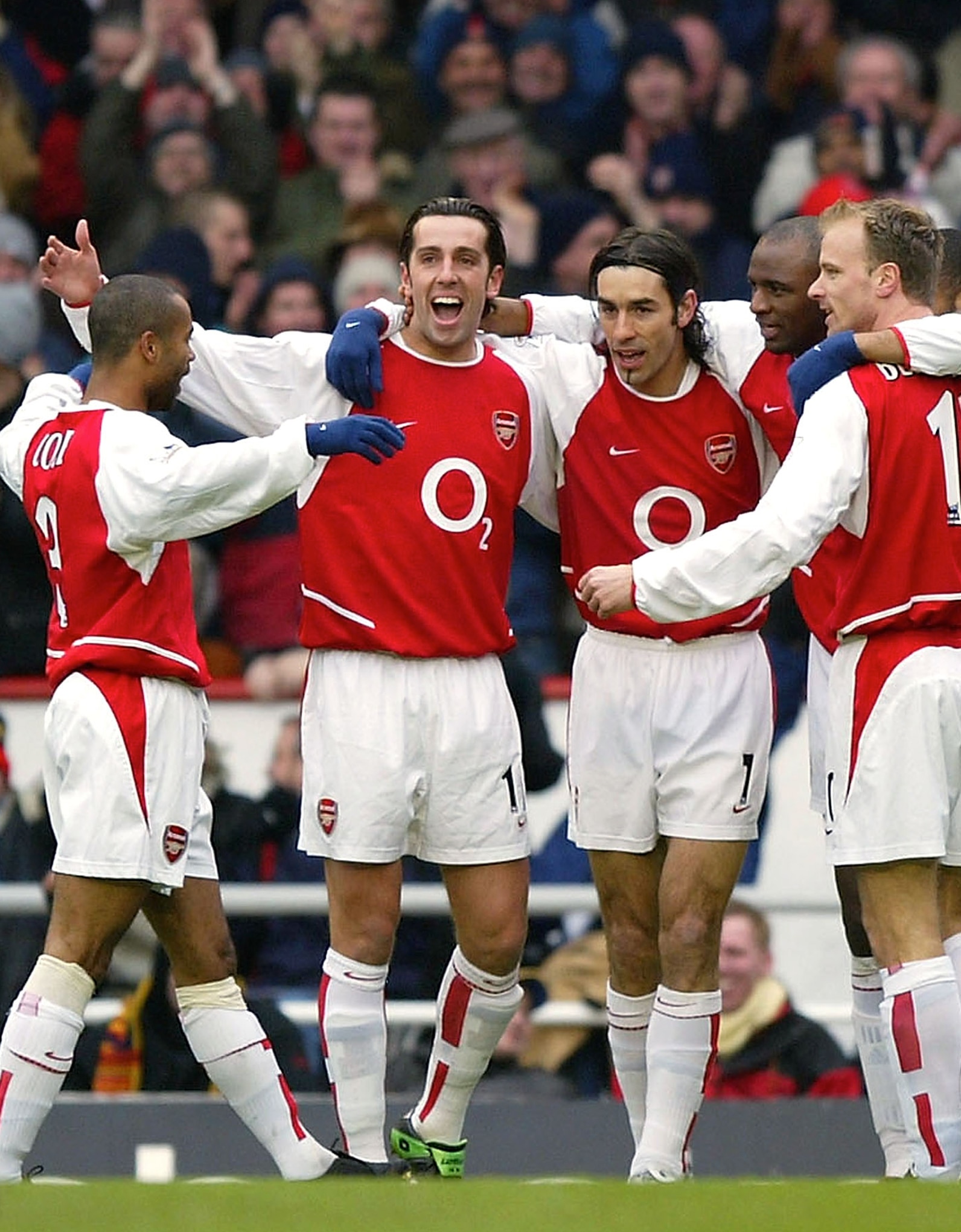
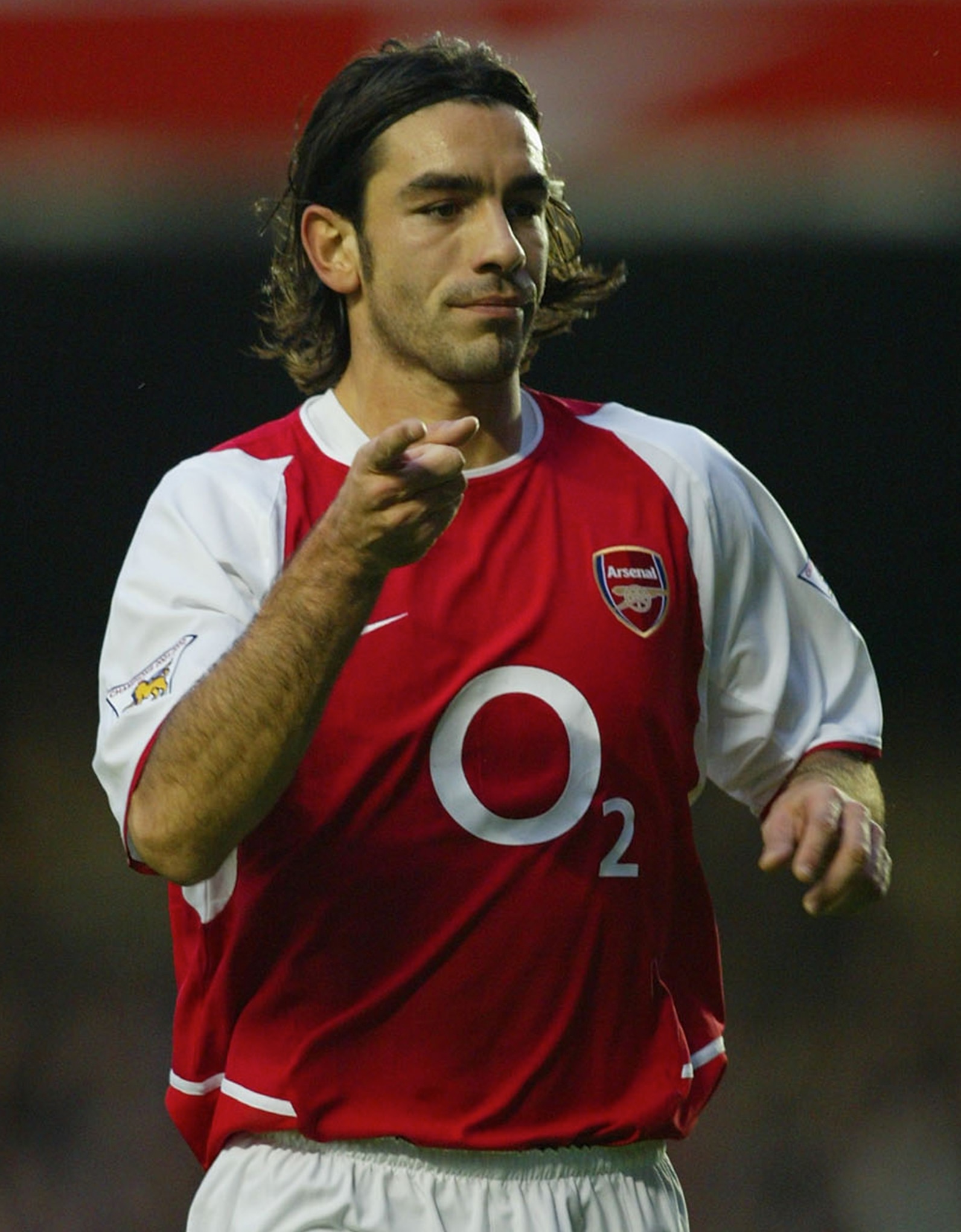
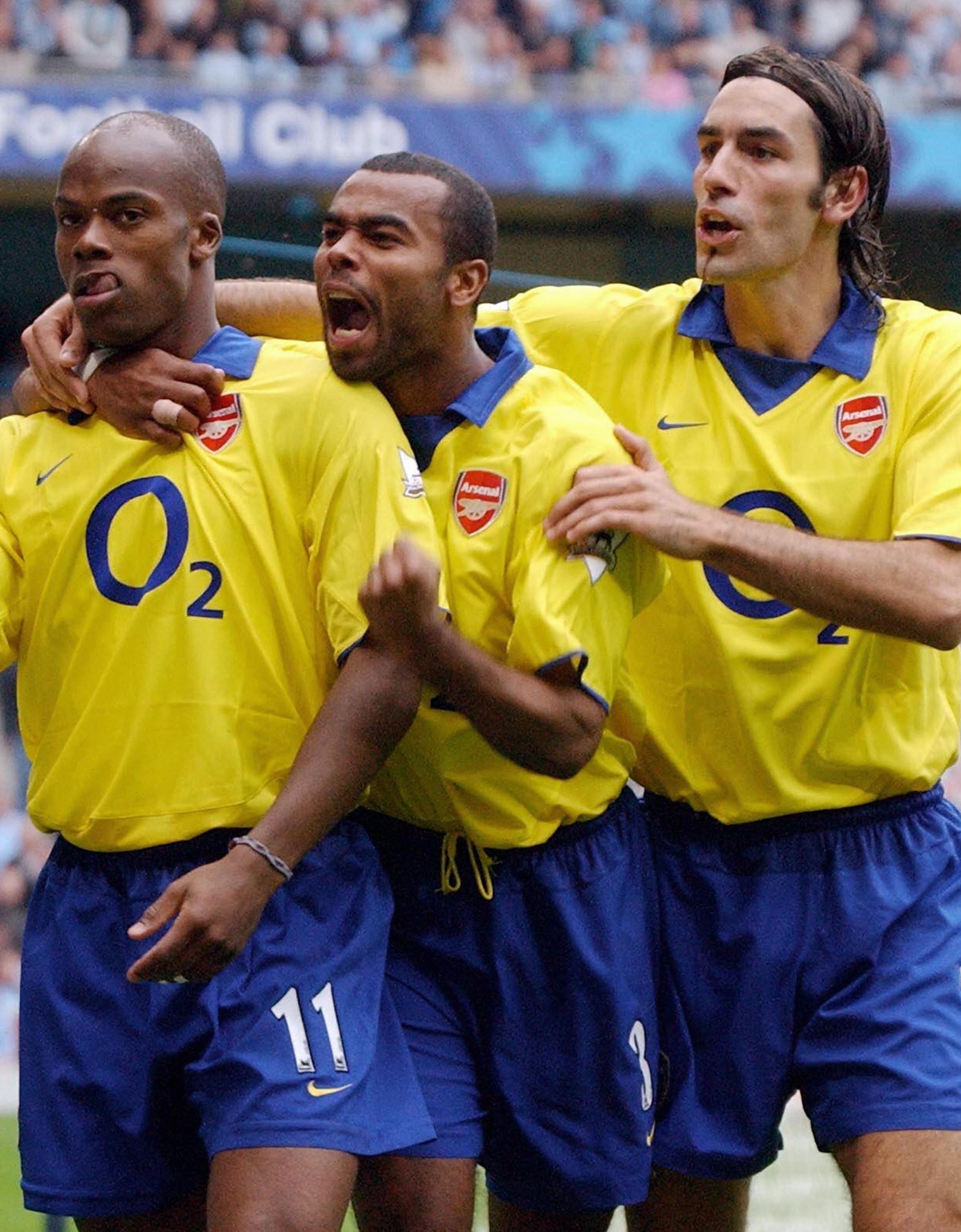

You mention Ashley – with yourself and Thierry drifting to the left as well, that left flank used to destroy teams!
Haha it’s true, it’s true! I agree with that, we destroyed some teams in the Premier League like that! It’s very difficult to explain why, it’s just a feeling, a connection that we had. I played a lot of times with Ashley, and it felt natural, we played so well together.
We had Gael Clichy too, who was just 18 that season, but I could see how good he would become. I always believed in Arsène Wenger when he brought players in, especially French players, we knew they would be very good. He knew the players there perfectly, so when he said that one day Gael could replace Ashley Cole, then we believed him.
Towards the end of the season you and Thierry scored in crucial home games against Liverpool and Leeds. How deadly was that partnership?
I don’t know but again, we had that connection. We played in the same country, we learnt the same football in France, and I think together we reached the best level. At that time Thierry was the best striker in Europe, and we both tried to help the team. But Arsenal was never only about one or two or three players. It was a team.
Arsène built a great, great team to try to lift the trophy. It was about the team. Yes you can talk about the players who scored the goals, and of course, I was very happy to score some goals too, but when I talk about Arsenal, I talk always about the team. That was the important thing.
We had players like Thierry who could make the difference, but the team is the team. Like Arsenal today – the team is the team, and at the end of the season, if you lift the trophy, it’s because of the team. It’s not because of Henry, it’s not because of Pires, it’s not Vieira – it’s the team. We play football – not an individual sport, a team sport.
"what do we still talk about 20 years later? The Invincibles. Nobody else has done it."
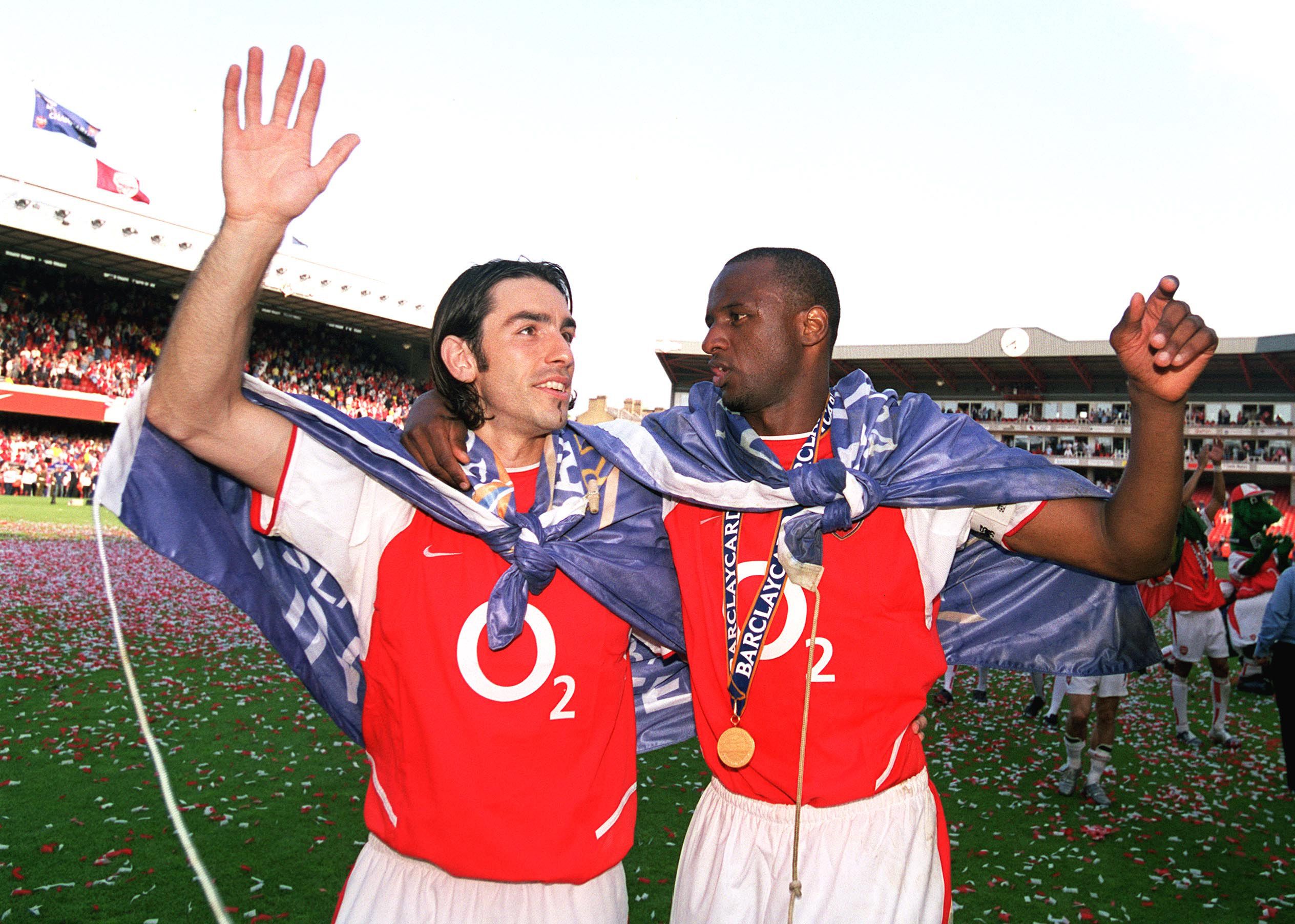
What was it like at White Hart Lane to win the title? You scored a lot against them, but that one must have been extra sweet?
I don’t know why I scored a lot of goals against Spurs, it’s strange, but for me, Tottenham were always the perfect victim! I think I played 12 times against them, and scored eight goals, in the FA Cup and Premier League. It was important for me, and especially for the fans, I know all about that rivalry now. That day we won the league there was one of the best moments in my career, without doubt.
At that moment, at the final whistle at White Hart Lane, we are champions! When you start the season in August, you play to play for these moments, to take the trophy, and – how do you say it - the icing on the cake was to win it at White Hart Lane. That season, everything was perfect.
After that we had four games left, and the aim was simply not to lose. Do you remember how Arsène motivated you all to keep your level up, even though the title was won?
Yes, very clearly. It was two days after the Tottenham game, he said: “Well done guys, congratulations, it’s been a long journey, we started in August. But it’s not finished.” The players looked up and said: “It’s not finished?! Of course it’s finished!” But the boss said: “No, I want to win it unbeaten.”
I turned to the guy next to me and said: “He’s gone crazy!” I was thinking 'come on, leave me alone, I just want to lift the trophy!' But no, he said the most important thing is to win it unbeaten. Then both Patrick Vieira and Thierry Henry said: “Yes, this is a great idea boss.” I said: “No come on, I just want to celebrate. I want to drink Champagne now!” But this was the word of Arsène, as well as Thierry and Patrick, so I said: “OK, we’ll fight until the end of the season.”
That’s the spirit they had as winners and fighters. And when Arsène said it, he found Patrick and Thierry beside him. And I’m very grateful now that we did, because what do we still talk about 20 years later? The Invincibles. Nobody else has done it. That’s why I say about Arsène Wenger: Crazy but a genius!

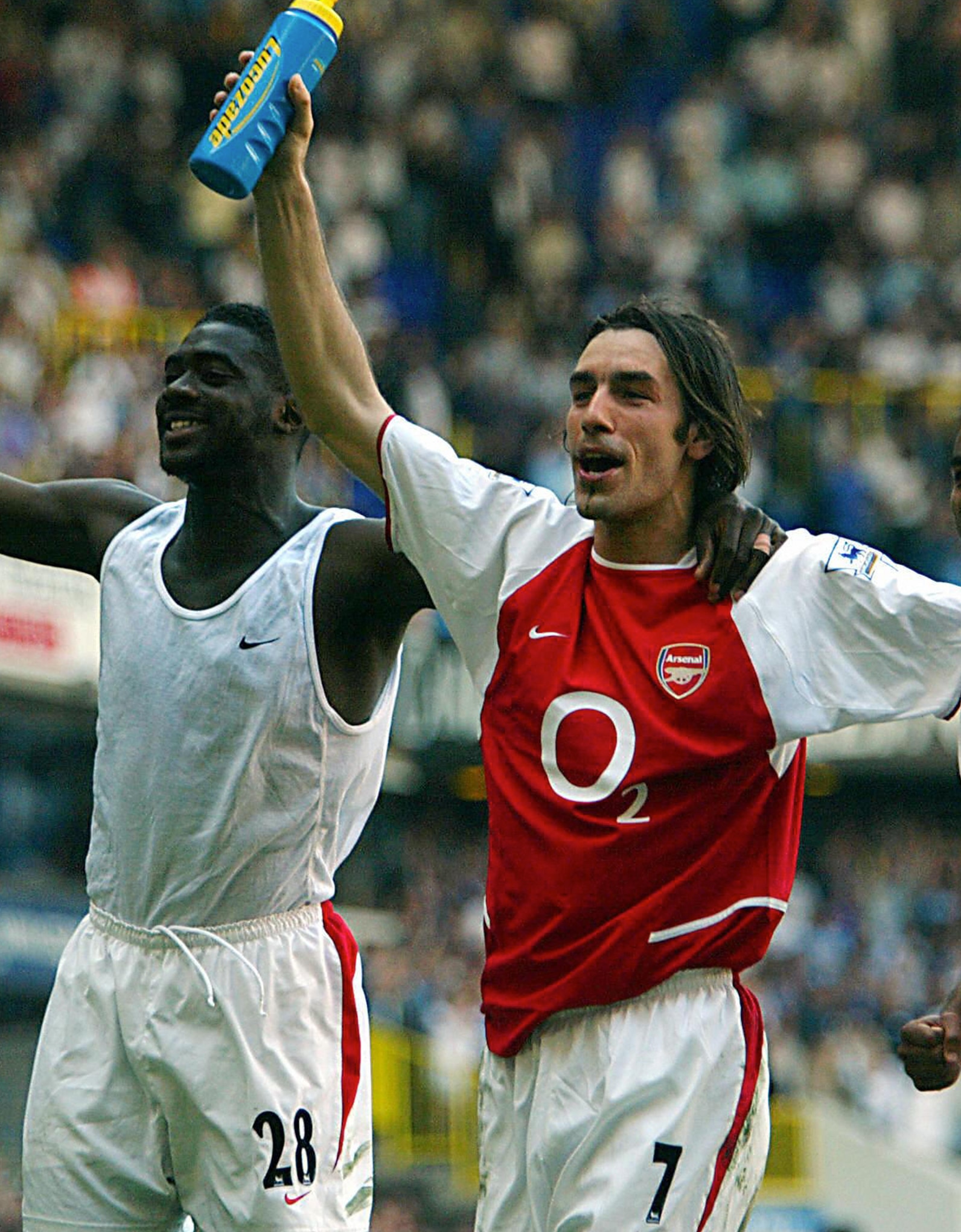

In 2002 you were injured when we wrapped up the title, so how much did it mean to you to be able to lift the trophy in your kit after the win over Leicester?
It was a great moment. Highbury was on fire – we lifted the trophy, we finished unbeaten. Everything was perfect. You cannot ask for more – we won the league at White Hart Lane, we were champions, and we did it unbeaten. I repeat: perfect. For me when I look back at that season, my main memory is the win over Liverpool at Highbury.
At half-time we were losing 2-1 and I remember how upset Arsène Wenger was in the dressing room. Very, very angry. He was shouting, using bad words, and for him that was not usual. But he changed the mentality of the whole team. He got the message over – it was a shock to the system. Then at the end of the game we won 4-2. So for me, I think that was a very big moment for the team and for the manager. He said exactly the right words, and got the right response.








